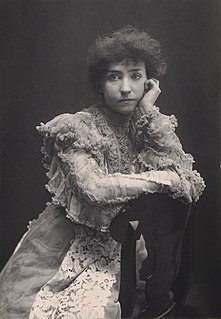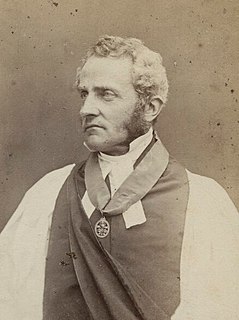A Quote by Joseph Conrad
To be busy with material affairs is the best preservative against reflection, fears, doubts ... all these things which stand in the way of achievement. I suppose a fellow proposing to cut his throat would experience a sort of relief while occupied in stropping his razor carefully.
Related Quotes
Symbols are specific acts or figures, while myths develop and elaborate these symbols into a story which contains characters and several episodes. The myth is thus more inclusive. But both symbol and myth have the same function psychologically; they are man's way of expressing the quintessence of his experience - his way of seeing his life, his self-image and his relations to the world of his fellow men and of nature - in a total figure which at the same moment carries the vital meaning of this experience.
How could the human mind progress, while tormented with frightful phantoms, and guided by men, interested in perpetuating its ignorance and fears? Man has been forced to vegetate in his primitive stupidity: he has been taught stories about invisible powers upon whom his happiness was supposed to depend. Occupied solely by his fears, and by unintelligible reveries, he has always been at the mercy of priests, who have reserved to themselves the right of thinking for him, and of directing his actions.
The material which a scientist actually has at his disposal, his laws, his experimental results, his mathematical techniques, his epistemological prejudices, his attitude towards the absurd consequences of the theories which he accepts, is indeterminate in many ways, ambiguous, and never fully separated from the historical background . This material is always contaminated by principles which he does not know and which, if known, would be extremely hard to test.
I suppose that Paderewski can play superbly, if not quite at his best, while his thoughts wander to the other end of the world, orpossibly busy themselves with a computation of the receipts as he gazes out across the auditorium. I know a great actor, a master technician, can let his thoughts play truant from the scene.
Sean reaches out between us and takes my wrist. He press his thumb on my pulse. My heartbeat trips and surges against his skin. I'm pinned by his touch, a sort of fearful magic. We stand and stand, and I wait for my pulse against his finger to slow, but it doesn't Finally, he releases my wrist and says," I'll see you on the cliffs tomorrow.
Like the eye which sees everything in front of it and never sees itself, faith is occupied with the Object upon which it rests and pays no attention to itself at all. While we are looking at God, we do not see ourselves - blessed riddance. The man who has struggled to purify himself and has had nothing but repeated failures will experience real relief when he stops tinkering with his soul and looks away to the perfect One.
A faith without some doubts is like a human body with no antobodies in it. People who blithely go through life too busy or indifferent to ask the hard questions about why they believe as they do will find themselves defenseless against either the experience of tragedy or the probing questions of a smart skeptic. A person's faith can collapse almost overnight if she failed over the years to listen patiently to her own doubts, which should only be discarded after long reflection.
If he [the Artist] were to take up the pen it would be...to better express his individuality and explain it to others; or else to put his internal affairs in order...to deepen and sharpen his relationship with his fellow men because other souls exert an immense and creative influence on our soul; or to try to fight for a world as he would like it to be, for a world that is indispensable to his life.
The best antidote against evils of all kinds, against the evil thoughts that haunt the soul, against the needless perplexities which distract the conscience, is to keep hold of the good we have. Impure thoughts will not stand against pure words and prayers and deeds. Little doubts will not avail against great certainties. Fix your affections on things above, and then you will less and less be troubled by the cares, the temptations, the troubles of things on earth.
The typical atheist rebels against God as a teenager rebels against his parents. When his own desires or standards are not fulfilled in the way that he sees fit, he, in revolt, storms out of the house in denial of the Word of God and in scrutiny of a great deal of those who stand by the Word of God. The epithet 'Heavenly Father' is a grand reflection, a relation to that of human nature.






































